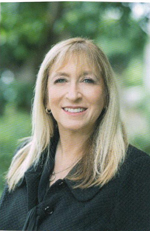Editor’s Note: The following Op-Ed appeared in Times of San Diego and is republished here under auspices of the San Diego Online News Association. Please note that within the following article by Tammy Gillies, San Diego regional director of the Anti-Defamation League, there is a link to a previous article by Prof. Jonathan Graubart criticizing the relationship between the ADL and San Diego State University.
By Tammy Gillies
Anti-Defamation League

SAN DIEGO — In response to a series of troubling antisemitic incidents recently at San Diego State University, the San Diego office of the Anti-Defamation League reached out to the administration with an offer to work with the university’s Center for Inclusive Excellence to develop an innovative professional learning opportunity for the faculty and staff.
The goal was to help faculty to better recognize the warning signs of antisemitism and to be better equipped to address issues of hate and bias when they arise on campus.
The administration, whom we have worked with closely over many years on these issues, responded enthusiastically to our offer. We are pleased and excited to be moving forward with this series of professional learning community sessions, which are modeled on trainings that the ADL has successfully facilitated at numerous colleges and universities across the country.
These programs have no agenda other than to educate campus officials about the sources and different types of antisemitic hatred. The sessions explain what antisemitism is and how it manifests, give a concise history of the world’s oldest hatred through the centuries, provide research and data on recent trends, and explain how to distinguish antisemitism from other forms of bias and hate.
One would think this would be uncontroversial. Founded in 1913, ADL is the world’s leading organization fighting antisemitism and bigotry in all forms. We have more than 100 years of experience in battling hatred in communities and universities across the country. No other organization has worked harder to expose antisemitism in society, and no other organization has the depth of research and expertise into the drivers of modern-day antisemitism.
It is unfortunate, therefore, that this well-intended effort to further a dialogue about antisemitism on campus has engendered severe criticism from one faculty member who, just a few days ago in this space, wrote an essay maligning this effort and questioning our motives for bringing our educational workshops onto campus. It is important to set the record straight.
So, first and foremost, I’d like to take this opportunity to reassure the entire SDSU community that this program is in no way an effort to silence criticism of Israel or support for the Palestinian people on campus. Nor is it an effort to stifle dialogue and debate, or an underhanded attempt to promote a pro-Israel agenda. All of these claims are categorically false.
We respect Professor Jonathan Graubart’s right to his own perspective and, as he makes clear in his essay, we certainly agree that antisemitism is still very much a problem at SDSU. Just during the spring 2021 term alone, we saw a break-in and theft at the SDSU Chabad House, an incident of antisemitic graffiti and messages associated with white supremacy outside a dormitory on South Campus Plaza North, and an alleged antisemitic social media post by a student.
But let’s be clear: ADL’s partnership on this program with SDSU will in no way “chill political discourse” or “marginalize advocates” for Palestinian rights as the essay claims.
At ADL we believe strongly in the First Amendment and the right of all people on campus to share their views, and to feel as if they can do so in an open environment where issues are discussed freely and even passionately.
But free speech does not mean the freedom to harass or intimidate students. Jewish students — indeed all students — should feel free to express their positions and views without having to encounter identity-based hate. All students should feel safe and supported on campus regardless of their background or their views.
The essay also claimed that ADL does not distinguish between criticism of Israel and antisemitism. That is false. We believe that one can take a position against Israel without resorting to antisemitic tropes. When such analogies happen, we begin to see how criticism of Israel morphs into unacceptable antisemitism.
As to being an organization that proudly supports Israel’s right to exist, we plead guilty. Does that position of support mean that we are unable to deliver an unbiased training on antisemitism? Of course not. Surely being pro-Israel does not automatically exclude you from having a voice on campus when it comes to antisemitism.
Graubart’s essay claimed that ADL ignores certain forms of antisemitism — such as when it targets academics like himself — because of a nefarious political agenda. This is categorically untrue, and the record speaks for itself. We have consistently condemned antisemitism in all forms, regardless of the target or those targeting. For us, speaking out about antisemitism is always about principles, not politics.
We are honored to have been chosen by SDSU to partner on this antisemitism program, and we look forward to helping the university create a safe and inclusive campus for all.
*
Tammy Gillies is director of the ADL’s San Diego Region, which serves San Diego and Imperial Counties.